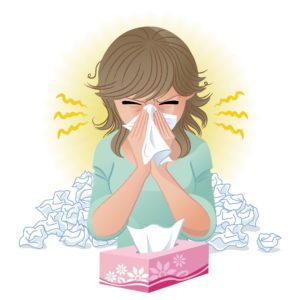MindCheck is the Weekly Wednesday Kids Mental Health series with Dr. Ray Pataracchia N.D. MindCheck provides in depth information on the orthomolecular approach to coping with mood and/or behavior disorders. The MindCheck Health Series is endorsed by the Mindful Network – ‘A Better Future for Children’s Mental Health’.

If you or your kids get frequent infections then nutrient imbalances may not only play a causative role but may predispose them to compromised mental health.
Immune Weakness in kid’s with Depression, Anxiety, & ADD – A Nutrient Perspective
Cold and Flu Season is Upon Us
Do your kids get frequent upper respiratory infections?
Does this have anything to do with mental health?
Upper Respiratory Infections (URI’s) – The Basics
URI’s can be bacterial or viral. The common cold and the flu are viral; flu symptoms are worse than cold symptoms and involve fever, muscle soreness and headache. A chest cold and a head cold are also typically viral. Bacterial URI’s typically respond to antibiotics whereas viral infections do not.
Nutrient Depletion in URI’s
Bacterial Infections are commonly seen in kids and adults with low copper levels and fast metabolisms. Copper is a powerful bacterial fighter.
Viral infections are commonly seen in kids and adults with high copper levels and slow metabolisms. Along with high copper we see low zinc levels and greater breakdown of vitamin C. Zinc and vitamin C are both powerful viral fighters. Copper also antagonizes B3, B5, and B6 and places greater need on these nutrients.
Protein Depletion in URI’s
Antibody’s that fight infections are protein complexes so maintaining high quality dietary protein is a key component in combating URI’s.
What does this have to do with Mental Health?
Copper and zinc imbalance are common in depression and anxiety. ADD and behavior disorders are also associated with copper/zinc imbalance.
Kids with slow metabolisms that have depression may be predisposed to viral infections whereas kids with fast metabolisms that have anxiety may be predisposed to bacterial infections. ADD and ADHD present in specific fast and slow metabolic states. Slow metabolic states are also associated with low thyroid metabolism which is associated with depression, anxiety, ADD and other behavior disorders.

